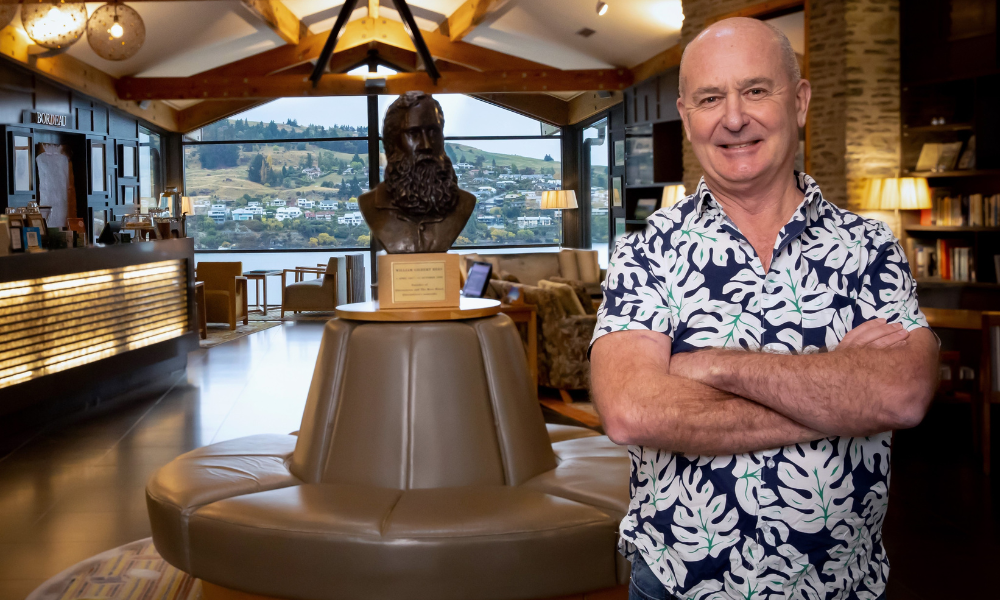
Reports don't mean a whole lot if you don't know what is happening in your business

Sometimes you’ll find him covering sales calls that see him touching down in ten countries in 42 days, other times you’ll find him driving his Bentley down the tree-lined streets where he lives in Arrowtown. But more recently, you’ll catch Mark Rose, CEO, just after he’s finished a dish-washing shift – his tenth in the last seven days – at Luxury Hotel ‘The Rees’.
“I started washing dishes at 13 and I’ve come back to doing it at 60. I’m the oldest and the highest paid dishwasher in New Zealand,” laughed Rose who is about to celebrate his 14th year of being CEO at the 5-star luxury hotel and residences.
The great reopening of New Zealand has turned into a great debacle for Kiwi tourism and hospitality operators who have been caught short by a major disparity between the number of staff needed to operate and available bodies in New Zealand to fill the roles.
At a cost of more than $2 million, Rose and the board at The Rees made the move to retain 55 core staff members on full pay throughout COVID, a time that he described as “the toughest two years of his working life.”
Read more: I went to my weakest employee and said, I’ve got your back
But as New Zealand grapples with the most severe talent shortage in history the hotel struggles to fill roles left vacant by natural attrition when COVID hit so Rose and his exec team have been pulling shifts in dishwashing, airport and mountain transfers, and housekeeping to cover the shortfall in hotel operations.
As a leader, Rose sees culture as key. The company was one of the early adopters of paying the living wage and when he first started in the role, Rose lived in the hotel and made himself available to staff 24/7 so he could set the culture in the business. “If you get the culture right, then everything else falls into place,” Rose told HRD.
A Māori proverb at the foot of Rose’s emails echoes his commitment to people; Hutia te rito o te harakeke. Kei hea te komako, e ko? Ki mai ki ahau, he aha te mea nui o te ao? Maku e ki atu He tangata, he tangata, he tangata. (Translation: Pluck the heart from the flax bush – where will the bellbird be? Ask me, what is the most important thing in the world? I will reply, it is people, it is people, it is people).
“We have an amazing culture at the hotel,” said Rose. We pay everyone very well, we always look after our people holistically, and when I saw everyone laying staff off during COVID, I thought, we’ve just had 10 amazing years in tourism and the reason we’ve done so well is our people. We had to show the same loyalty to them as they’d shown to us, so we carried them through the pandemic and now we’ve got a good base of people here, our culture is still in place, and we’re doing really well,” he continued.
Read more: Nike rewards staff with week-long mental health break
Rose believes more executives and managers could do with some time spent working inside their businesses. “They need to get into the business and get their hands dirty. They write reports, but those reports don’t mean a whole lot if they don’t know what’s going on inside their business,” said Rose.
He doesn’t don a uniform while working, opting instead for what he calls his own uniform of Levi’s, a t-shirt and shoes. “A lot of people will talk to me when I’m doing transfers and they work out that I do more than drive for a job and they’re amazed, which astounds me – why would you be amazed? We’re in the service industry and I’m no better than anybody else, so I get in and do it,” said Rose.